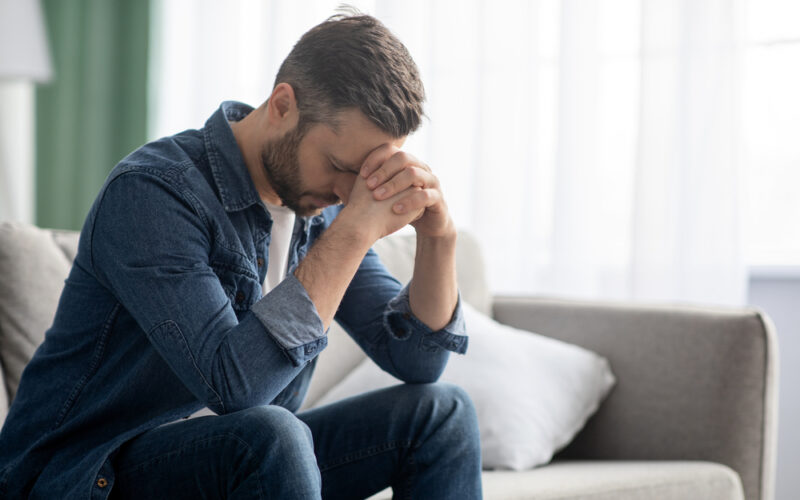When most people think of erectile dysfunction (ED), they typically associate it with older men. However, ED in 30s is much more common than many realize, affecting a significant number of younger men during what should be their sexual prime. This unexpected challenge can be particularly distressing, often leading to confusion, embarrassment, and relationship strain.
The erectile dysfunction young men face is a multifaceted issue with various potential causes—from psychological factors to underlying health conditions and lifestyle choices. The good news is that ED is highly treatable at any age, and addressing it early can improve your sexual health and potentially prevent more serious health problems.
Common Causes of ED in Your 30s
When experiencing erectile difficulties in your 30s, you might wonder, “Why do I have ED?” Several common causes affect men in their 30s specifically.
Psychological factors often play a significant role in causes of ED at 30. Performance anxiety creates a cycle of worry that interferes with arousal. Career pressure, financial stress, and relationship challenges can elevate stress hormones that interfere with sexual function. Depression and anxiety disorders can also diminish libido and erectile capacity.
Medical conditions can contribute even at younger ages. While testosterone naturally begins to decline around age 30, a significant drop can affect sexual function. ED is often an early warning sign of cardiovascular disease, as the small blood vessels in the penis can show damage before larger vessels elsewhere. Metabolic conditions like prediabetes and diabetes can damage blood vessels and nerves essential for erectile function.
Lifestyle factors significantly impact erectile health in your 30s. Poor diet and obesity promote inflammation, hormonal imbalances, and vascular damage. Alcohol, recreational drugs, and nicotine can all impair sexual performance. A sedentary lifestyle reduces cardiovascular health, which is essential for erectile function. Sleep deprivation affects testosterone production and energy levels.
Medication side effects from antidepressants, blood pressure medications, and certain other prescriptions may impact erectile function as well.
When to Seek Medical Help
Consider seeking medical help if you consistently have trouble getting or maintaining erections, if difficulties are causing anxiety or relationship problems, or if you’re experiencing other concerning symptoms alongside ED.
Early diagnosis of ED in 30s is valuable for several reasons. It can identify underlying health conditions that benefit from early intervention. The longer ED persists, the more likely it is to create psychological complications that further exacerbate the condition. Most causes respond better to treatment when addressed early.
When seeking help, start with your primary care physician, who can perform initial evaluations and make appropriate referrals. Be prepared to discuss your medical history, medications, lifestyle factors, and details about your erectile difficulties.
Treatment Options for Younger Men
If you’re wondering how to treat ED in your 30s, numerous effective options exist with excellent success rates for younger men.
Lifestyle modifications can significantly improve erectile function without medication. A Mediterranean-style diet may improve vascular health and erectile function. Regular exercise enhances cardiovascular health and blood flow. Stress management techniques can reduce anxiety that interferes with sexual performance. Limiting alcohol, avoiding tobacco and recreational drugs, and achieving modest weight loss if needed can all improve sexual performance.
Psychological approaches are effective when mental factors contribute to erectile issues. Therapy helps address anxiety, depression, or past traumas affecting sexual function. Sex therapy provides techniques to address sexual concerns and reduce performance pressure. Relationship counseling can help resolve conflicts when relationship dynamics contribute to difficulties.
Medical treatments include oral medications like sildenafil (Viagra), tadalafil (Cialis), vardenafil (Levitra), or avanafil (Stendra), which enhance blood flow to the penis when sexually aroused. Testosterone therapy may be appropriate if blood tests confirm low levels. Online ED clinics have made accessing treatment more discrete and convenient.
For many younger men, the most effective approach to how to treat ED in your 30s involves combining strategies—addressing both physical and psychological factors simultaneously often yields the best results.
Conclusion
Experiencing ED in 30s can feel isolating, but you’re not alone and effective solutions exist. Rather than viewing erectile dysfunction as a permanent condition, consider it a signal that some aspect of your physical or psychological wellbeing needs attention.
Early intervention is key—both for restoring sexual function and potentially identifying underlying health conditions. The majority of younger men who seek treatment see significant improvement, often with simple lifestyle adjustments or short-term medical support.
Whatever the cause of your symptoms, erectile difficulties don’t define your masculinity or worth as a partner. If you’re experiencing erectile difficulties, schedule a consultation with Heally today. Our network of healthcare providers can offer discreet, professional evaluation and personalized treatment plans for your specific needs.
Sources
MedicalNewsToday: How does age affect erectile dysfunction?
Healthline: Erectile Dysfunction at 30: Causes and Treatment Options
NIH: Erectile dysfunction in fit and healthy young men: psychological or pathological?

